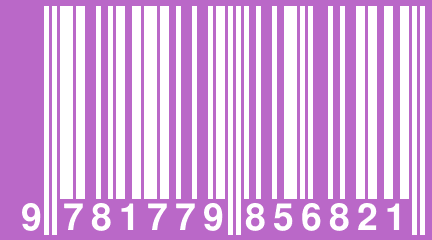
Charlotte Maxeke, activist hero
Glanice Masilo
Vusi Malindi

English
First paragraphs
——
This story is about Charlotte Maxeke.
-
In 1901, she was the first Black South African woman to graduate with a university degree.-
Charlotte Maxeke was an activist, an intellectual, and a religious leader.-
This storybook celebrates her life.1
Khanyisa and Nthuseng are walking home from school. It is a hot day in Johannesburg.
-
As they pass the hospital, they decide to rest at a bus stop outside the entrance.-
The hospital is Charlotte Maxeke Academic Hospital.2
“Hey, do you know who Charlotte Maxeke was, and why they named a hospital after her?” Khanyisa asks her friend.
-
Nthuseng replies, “Although I have walked past here many times, I never thought about it until now.”3
A student is walking past as the girls are chatting. She is studying Health Sciences at the University of Witwatersrand.
-
“I can tell you who Charlotte was!” says Busisiwe, the student.4
“Charlotte Makgomo Mannya was born in the 1870s,” begins Busisiwe.
-
“Wow, nearly 150 years ago!” exclaims Khanyisa.-
“Yes, and there are different records about exactly when and where Charlotte was born. Some say she was born in the Eastern Cape, others say she was born in Limpopo,” continues Busisiwe.5
Busi says, “Charlotte went to a missionary school and was an excellent student. She was good at Mathematics and language. She knew isiXhosa, Dutch and English.”
-
“Charlotte completed high school faster than most children,” says Busi. “She was lucky!” says Nthuseng. “She was clever!” says Khanyisa.6
“Charlotte was very clever. She also sang with a beautiful voice,” says Busisiwe.
-
“After diamonds were discovered in South Africa, Charlotte’s family moved to Kimberly, in the Northern Cape.-
She worked as a teacher and she sang with the African Jubilee Choir.”7
“Charlotte travelled to England with the African Jubilee Choir. They performed for important audiences in London, and then went to tour America,” continues Busisiwe.
-
“Charlotte got a scholarship to study at Wilberforce University in America. It was the first university set up by African Americans.”8
“While studying, Charlotte became politically active. She went to women’s rights talks. She studied with an important pan-Africanist intellectual called W.E. Du Bois. She was also active in her church.
-
At Wilberforce University, Charlotte also met her husband, Marshall Maxeke.”9
“Charlotte and Marshall returned to South Africa to work as missionaries. They wanted to ensure that all children had quality education.
-
The church helped them to set up a school in Johannesburg, for black South African children. They called this successful school the Wilberforce Institute.”10
“Charlotte focused on social issues affecting Black women. She was also involved in the multiracial women’s movement.
-
She helped to organise protests against colonial laws, and was involved in workers’ protests. She was a church leader, teacher, writer, and an activist. She was awesome!” smiles Busi.11
Busisiwe concludes, “I learned about Charlotte Maxeke when I came to this hospital to study. It was called Johannesburg Hospital, but it was renamed 'Charlotte Maxeke' in 2008.”
-
“She is an important woman in history!” says Khanyisa. “They should teach us about her at school!” says Nthuseng.12
Busisiwe agrees with the girls and then says, “Goodbye, I have to go to class now.”
-
“Thanks for sharing. We will always remember Mam’Charlotte, Dr Maxeke,” said Khanyisa.-
“Don’t forget, Black women are powerful! See you at university!” waves Busisiwe.13
——Questions
- Where was Charlotte born?
- What school did she attend?
- She sang for which choir?
- What was the name of the hospital which is now named after her?
- Who did Charlotte Makgomo Mannya marry?
- Why is Charlotte Maxeke important in history?
14
——Books in this series
- Andile Mji
- Asnath Mahapa
- Bongani Mayosi
- Charlotte Maxeke
- Mmantsane Moche Diale
- Mulalo Doyoyo
- Tebello Nyokong
- Tshilidzi Marwala
15
——
This story was created and written in Setswana, as part of the Zenex Ulwazi Lwethu reading materials project in 2020.
16

Attribution CC BY

Your attribution should include the following:
Title: Charlotte Maxeke, activist hero
Author/s: Glanice Masilo
Translator/s: Glanice Masilo
Illustrator/s: Vusi Malindi
Assurer/s: African Storybook
Language: English
© Zenex Foundation - Saide 2024
Title: Charlotte Maxeke, activist hero
Author/s: Glanice Masilo
Translator/s: Glanice Masilo
Illustrator/s: Vusi Malindi
Assurer/s: African Storybook
Language: English
© Zenex Foundation - Saide 2024
CC BY includes the following elements:
BY – Credit must be given to the creator
– Credit must be given to the creator
BY
 – Credit must be given to the creator
– Credit must be given to the creator